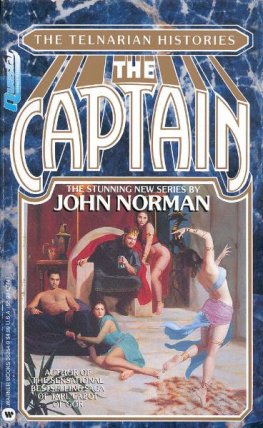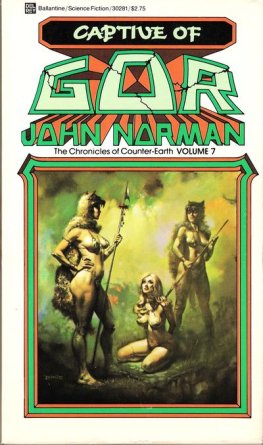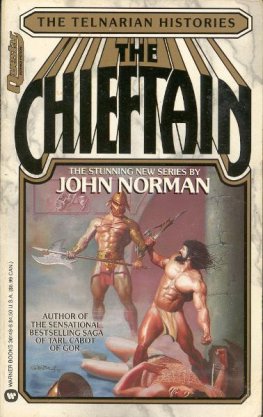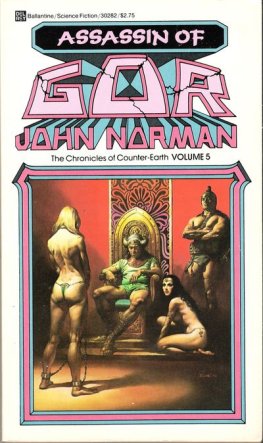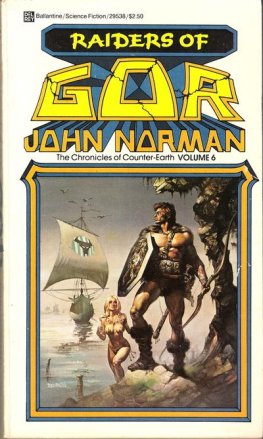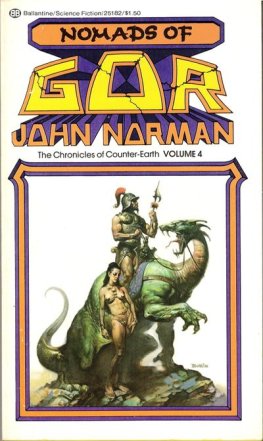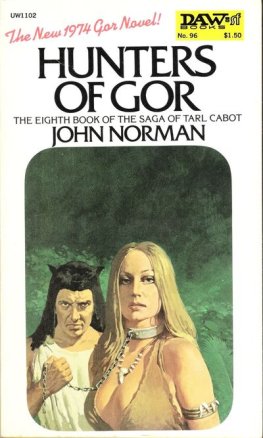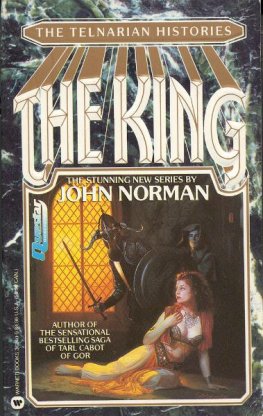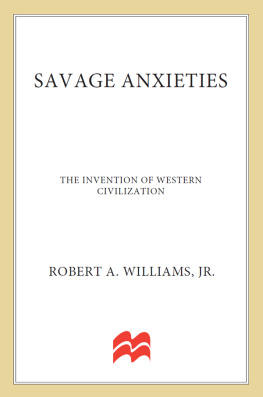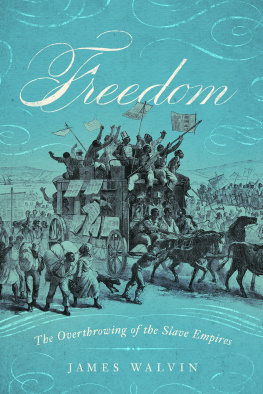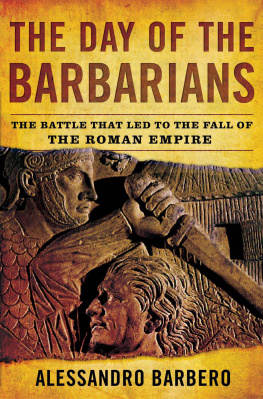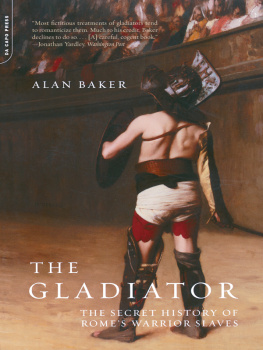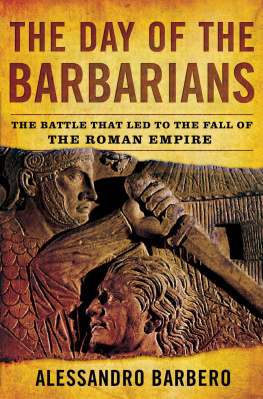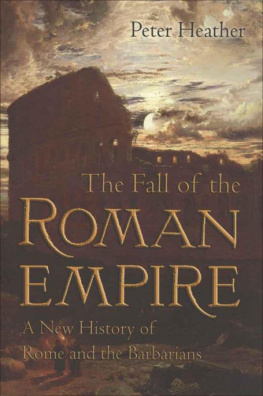John Norman - The Captain
Here you can read online John Norman - The Captain full text of the book (entire story) in english for free. Download pdf and epub, get meaning, cover and reviews about this ebook. City: New York, year: 1992, publisher: Questar/Warner Books, genre: Science fiction. Description of the work, (preface) as well as reviews are available. Best literature library LitArk.com created for fans of good reading and offers a wide selection of genres:
Romance novel
Science fiction
Adventure
Detective
Science
History
Home and family
Prose
Art
Politics
Computer
Non-fiction
Religion
Business
Children
Humor
Choose a favorite category and find really read worthwhile books. Enjoy immersion in the world of imagination, feel the emotions of the characters or learn something new for yourself, make an fascinating discovery.
- Book:The Captain
- Author:
- Publisher:Questar/Warner Books
- Genre:
- Year:1992
- City:New York
- ISBN:978-0446362542
- Rating:4 / 5
- Favourites:Add to favourites
- Your mark:
- 80
- 1
- 2
- 3
- 4
- 5
The Captain: summary, description and annotation
We offer to read an annotation, description, summary or preface (depends on what the author of the book "The Captain" wrote himself). If you haven't found the necessary information about the book — write in the comments, we will try to find it.
The Captain — read online for free the complete book (whole text) full work
Below is the text of the book, divided by pages. System saving the place of the last page read, allows you to conveniently read the book "The Captain" online for free, without having to search again every time where you left off. Put a bookmark, and you can go to the page where you finished reading at any time.
Font size:
Interval:
Bookmark:
The Captain
(The Telnarian Histories, Book 2)
by John Norman
This book is dedicated
to all who disapprove of censorship.
PROLOGUE
And then the ships departed, leaving behind them ashes.
-The Annals.Again I have chosen to begin with an excerpt from the Annals.
It is an excerpt not untypical of the dark and troubled times.
One who has lived in, or knows only, times of sheep will find it difficult to understand times of wolves.
In this account is continued a story, drawn from the dark and troubled times.
The dark and troubled times were times of wolves.
Again, it must be clearly kept in mind that I do not write to edify or instruct, nor to praise or blame, nor even, really, to explain, or understand. I am not sure, you see, what are the criteria for understanding, how I might, so to speak, know if I understood, or only thought I understood, and perhaps did not really understand. Who can understand himself, or others, truly? Surely, at least, it is hard for the heart, as for the eye, to look upon itself. It is always, so to speak, behind its own back. Too, perhaps, in the end, there is no understanding, no more for us than for the tree, or rock, only that we think that we understand, that we have that illusion, that natural, comforting illusion, much as sap might flow in the tree or molecules sleep in the rock.
In short, know, dear reader, whoever you may be, that you are loved, but know, too, that I strike no bargains with you. It is not my business to tell you what you want to hear, nor to reassure you that the cosmos, and time and space, and substance, and right and wrong, if they exist, are tidy, safe, and cataloged upon your shelves. I do not know the measure of man, nor can I, unlike so many others, weigh his soul, and mark out the boundaries of his heart. I do not know what is best for him, nor if what is best for him is right or wrong, nor if right and wrong, in their thousands, are something that he has not yet decided, or something that was decided for him, long ago, by the movements of molecules in the primeval nebula. So it is not my business to assure you that the world is as you would like it to be. It is not I, you see, nor you, but the world that has the last word on such matters.
So let us, given these cautions, and reflections, reverencing reality, and expecting no more than it is willing to give, patient with mystery, resume our story. It takes place, as we noted, in the dark and troubled times, in a time of broad-winged vultures, and long-maned lions, of processions, of marches with arms, of dark ships, soft in the night, and fires, and ashes, in a strange and dreadful time, a turbulent time, one when life was harsher and more terrible, and perhaps more real than now. This is a time when men lived by their wits and strength, and cunning and skill, a time when marches were long, and weapons so sharp that, as it was said, they could draw blood from the wind. In this time there were men, and women, and other creatures, and it was a time of endings, and beginnings, of battles and cities, of harvests and burnings, of taverns and brothels, of long voyages and bustling markets, in many of which beauty had its price, and times, too, here and there, well worth remembering, today so far from mind, of fidelity, of discipline, and honor, and courage. Doubtless it was a dangerous and terrible time in which to live, that of endings and beginnings, and yet, interestingly enough, nowhere, in all the Annals, and contemporary documents, not in the letters, the heroic lays, the skaldic verses, the chronicles, the tracts, the myths, the tales, the saints lives, the accounts of captains, the songs of chieftains and kings, the treatises, the sagas, the simplest commemorative inscriptions, nowhere that I can determine, do I find regrets expressed that one lived then. Nowhere, as far as I can determine, did anyone express a desire that they might have existed in another time.
How inexplicable is so simple a thing!
One wonders how such a thing may be.
In a time of sheep men may fail to notice that they are alive, or, at least, may take it muchly for granted, or not pay much attention to it, but, it seems, that is not the case in a time of wolves.
And the dark and troubled times were, as we have noted, such a time, a time of wolves.
In such a time, if nothing else, men and women were alive.
Note:
Earlier, in a previous manuscript, we included certain commentaries and speculations having to do primarily with historiographical matters, which it would be inappropriate to reiterate here. At this point we will note only that the chronology of the accounts seems obscure. There are, of course, many difficulties in dealing with the problematicities of time. Similarly the multiplex labyrinths of space, it is occasionally speculated, perhaps idly, may enfold one another, or retrace their passages. It is possible, too, one supposes, that there are dimensions other than our own, and that the tiers of reality may exceed our horizons, which we take, naturally enough, like the rodent and insect, to constitute the termini of being. Perhaps there are parallel, or intersecting, universes, or dimensions. This possibility, absurd though it may be, suggests the possibility of points of connection with our own world, perhaps even corridors or gates. Too, some speculate that the Telnarian world, in some obscure sense, may be our own world, and not another, that it lies somehow in our own past, or, perhaps, future. Perhaps it was once our world, and has grown apart. Perhaps we are branches on the same tree, and as we grow toward the stars, or doom, we can hear, from time to time, the rustle of one anothers leaves in the darkness. But such speculations are doubtless absurd. Therefore we dismiss them. Lastly I might mention that we have, on the whole, followed the chroniclers, or chroniclers, if that should be the case, divisions of the manuscript.
CHAPTER 1
Remove her clothing, said the connoisseur.
I see, said the connoisseur.
She is not mine, said Julian, of the Aurelianii, speaking to the connoisseur. I would like, as a favor, for a friend, as a surprise for him, to have her informed, enlightened.
Trained? asked the connoisseur.
Well trained, said Julian.
Exquisitely?
Surely.
Until she becomes fully what she is, explicitly, manifestly, and can be nothing else?
Yes.
One wonders, mused the connoisseur.
It is my expectation, conjectured Julian, that she might prove acceptable.
That seems possible, said the connoisseur. Is she alive?
I do not know, said Julian.
There was a sudden, soft, startled, involuntary, timid, shamed, helpless cry.
Keep your hands at your sides, said the connoisseur.
There was an intake of breath. Then there was another small cry, suddenly, much like the first.
She will moan well, said the connoisseur.
Excellent, said Julian.
Kneel, with your head to the floor, said the connoisseur. She will require attention, and frequently, he said.
Julian looked down at her.
I leave the matter then in your capable hands, said Julian. He then turned about and left.
CHAPTER 2
Look! cried a citizen.
Fellows about him laughed.
It is a bumpkin from an ag world, cried the citizen.
Where did you get those frocks! cried another.
The giant raised his hand to his forehead, and, with the back of his hand, wiped away the rage of sweat. This was not, of course, Telnaria, the home world, but was a summer world.
Flies swarmed about his face.
It was different in the cool, dark forests of his tribe, taken to be that of the Wolfungs. It was one of five related tribes, the others being the Darisi, the Basungs, the Haakons and the Otungs. The Otungs was the largest and fiercest of these five tribes. It was also considered the parent tribe of these five tribes. It had been muchly devastated, long ago, as had its brethren tribes, in wars with the empire. We may think, collectively, of these five tribes as constituting the nation. There were many such nations, composed of diverse tribes. This particular nation, in which the Wolfungs, the Otungs, and such, figure, was a nation not regarded, at that time, as one of great importance, particularly after its defeat in various wars. This particular nation was that of the Vandals. Few people, at that time, had heard of it. The etymology of the name has been elsewhere discussed. The expression nation is here used advisedly, but not, I think, inappropriately. The expression folk or people would doubtless be more judicious but we are here dealing with political matters and in such a case it seems more apt, for our readers, to speak of nations. Too, there is a tendency, perhaps now too ingrained to be ignored with impunity, to speak of nations in these matters. There are some differences, however, which are not unimportant. In particular, the relation a member of one of these tribes has to the tribe, or the people, or folk, or nation, is not to be understood as being identical to that of a citizen to his state, though there are doubtless similarities. The state, in a sense, is an artificial nation, a contrived nation, a legal construction, relying upon conventions acknowledged, and observed, a theoretically voluntary organization, though, to be sure, it may confront the citizen with all the practical irrefutability and implacable solidity of a given datum, a condition of being, a law of nature, a family or species. The relation of a citizen to a state is usually construed, at least in theory, as a contractual one, either implicitly or explicitly, as in uttering oaths of allegiance, and such. The relationship within the tribe, on the other hand, is not contractual, neither implicitly nor explicitly, no more than that of being brothers. One does not participate in a tribe, but one is of the tribe, much as one finds oneself, through traditions of blood, one of a family, or line. Tribes consist of clans, and clans of families, and thus one is speaking, here, when one speaks of tribes, of complicated and extensive networks of human relationships, and predominantly blood relationships, though in many cases of an extended and tenuous sense. The state rests upon law, and the tribe on blood. One cannot, in the ordinary course of things, cease to be a member of tribe, any more than one can cease to be the son of ones father. To be sure, certain caveats must be entered. For example, one may be accepted into a tribe, and then one is truly of the tribe; and one may be cast out of the tribe, and thus be no longer of the tribe; and one may repudiate the tribe, and thus remove oneself from it. Here, in such considerations, we find that the tribe bears analogies to, for example, the obtaining of citizenship, the loss of citizenship, the repudiation of citizenship, and such. The tribe is thus, in a sense, analogous to a biologically founded state. It is thus, actually, not simply biological, not simply a matter of blood, and, at the same time, it is more than an abstraction, a matrix of legalities, a creature of convention, profound or otherwise. There are, of course, many other differences, and many other commonalities, as well. It may be useful to mention some, as it may render more intelligible some portions of what follows. Custom is important in the tribe, and law in the state, though it is a matter of degree, for the state, too, has its customs, and some tribes, at least, have their laws, though usually the laws in such tribes are unwritten, and are the province of the law-sayers, who must, in many such tribes, memorize the law, and are responsible for reciting portions of it at gatherings, to keep it in living memory, usually a third of it at each annual gathering. Thus the men in such tribes will hear the law as a whole, from its sayers, once every three years. In many tribes, on the other hand, the court of law is the hut of the chieftain, and its statutes and codices are his whims. Better put, perhaps, in such tribes there is no law, but there is the will, the decision, of the chieftain. Citizens are often literate, while tribesmen are less often so. But, of course, there are illiterate citizens and literate tribesmen. Men who can read and write are often kept, like interpreters which, in a sense, they are, in tribes, to aid in the conduct of business, and in transactions with other communities. Although tribes are diverse, as are men, and
Font size:
Interval:
Bookmark:
Similar books «The Captain»
Look at similar books to The Captain. We have selected literature similar in name and meaning in the hope of providing readers with more options to find new, interesting, not yet read works.
Discussion, reviews of the book The Captain and just readers' own opinions. Leave your comments, write what you think about the work, its meaning or the main characters. Specify what exactly you liked and what you didn't like, and why you think so.

